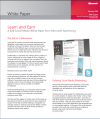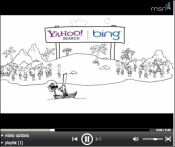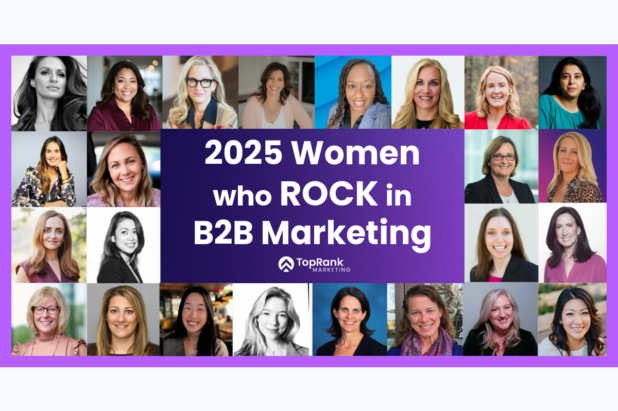
Spotlight on Search Interview: Mel Carson of Microsoft Advertising on How Microsoft Does Social Media and the Yahoo Bing Search Alliance
 If you attend Search Marketing industry conferences, you’ve no doubt run into the ever optimistic and charming Mel Carson from Microsoft. When I was last in London, Mel connected me with an excellent Fish n Chips that the pubs around Trafalgar Square couldn’t get close to. Mel is active as an advocate of Microsoft Advertising , especially via social media channels and at conferences to the Webmaster and search marketing community. His work is global and very interesting. With the Bing and Yahoo convergence, I thought it was time we did an interview – and he agreed.
If you attend Search Marketing industry conferences, you’ve no doubt run into the ever optimistic and charming Mel Carson from Microsoft. When I was last in London, Mel connected me with an excellent Fish n Chips that the pubs around Trafalgar Square couldn’t get close to. Mel is active as an advocate of Microsoft Advertising , especially via social media channels and at conferences to the Webmaster and search marketing community. His work is global and very interesting. With the Bing and Yahoo convergence, I thought it was time we did an interview – and he agreed.
Mel has accomplished amazing things with Microsoft’s use of social media and other large companies could learn a lot from this interview where he talks about Microsoft’s use of social media and what impact the Yahoo Bing Search Alliance will have on search and search advertising.
Welcome Mel, it’s exciting times as usual in the search engine world. Please tell us, what has changed about your job at Microsoft since you were last here?
My role at Microsoft Advertising evolved about 18 months ago as a result of the work our team had been doing in social media for adCenter. We had been building up an engaged audience on the adCenter Blog and forums for 3 years and started the adCenter Twitter account and Facebook page. Our engagement with our customers was such a success, it made sense for someone to start using social to tell marketers about all our other digital assets. So I started the Microsoft Advertising Blog which brings our readers news and insight in what we’re up to in display, mobile, games advertising and research.
I also head up our events calendar. Last year we covered nearly 40 digital conferences all over the world, and it’s my job to ensure we have people trained to blog and tweet from @MSAdvertising at those events and really bring them alive.
Sometimes we go the full monty and come armed with a film crew and interview folks. Perhaps my highlight was Twitter founder Biz Stone at Cannes 2009 , but this year was awesome as we got backstage access to the TED@Cannes conference we’d partnered with them and the Starcom Mediavest Group on.
We featured Microsoft Advertising in a post about B2B Social Media Winners, earlier this year and I’m wondering if you can share how your group developed their approach to the social web?
 In February this year we published a white paper (pdf) which outlined our story and approach. We’ve been listening to our customers since the start of 2006, way before Twitter and Facebook hit the mainstream. We got involved because it made perfect sense to use the web to communicate in a two-way dialogue with adCenter customers who were expecting best practices, tips, tricks and news to be at their fingertips.
In February this year we published a white paper (pdf) which outlined our story and approach. We’ve been listening to our customers since the start of 2006, way before Twitter and Facebook hit the mainstream. We got involved because it made perfect sense to use the web to communicate in a two-way dialogue with adCenter customers who were expecting best practices, tips, tricks and news to be at their fingertips.
We started slowly with a blog and forum, and built the strategy through common sense and by reacting swiftly to the needs of our advertisers. Social media isn’t the proverbial “rocket science”. It’s an awesome extension of traditional marketing and research methods which enable you to glean feedback in real-time, and help people in ways that never existed before.
What guides your social media strategy and participation?
Microsoft Advertising is an intensely customer-centric organization. It’s our advertisers, and potential advertisers, that guide us through where they go for news and information and what they tell us they need in order to be better marketers.
By investing in a team to monitor and engage with our paying customers, we hope we’re demonstrating that we’re open to feedback, want to build the best products and services we can, and are excited to provide insight through research and case studies that resonate with marketers all around the world.
What are your social media goals and how do you measure them? Or is it more accurate to say, what are your business goals that involve social media and how do you measure them?
Bit of both really. We look at growth as an indicator. Be it number of followers or fans, visitors to the site, number of answers to forum questions by other forum members, links from other blogs and news sites. The more reach we have, the more people we can tell our story to and let folks know we’re here and willing to help.
The other big ROI metric is how far we help lower support costs. It’s not cheap to have a call center, so if we can answer questions online through a carefully crafted blog post or tweeted link to the best information, we’re not incurring costs and we’re reaching more people with that information. A happy and informed advertiser is likely to spend more, so the two together increase the bottom line.
Return on In-action is another. What would people think if we weren’t operating in the social space? What would be the business implications of not having an early warning system in place?
How do you structure and manage listening and engagement?
We cover about 16 hours a day as I’m based in London and we have a team in Seattle. I’ll look after things from 9am GMT until about 6pm when it’s 10am PST and the US team takes over. We have various alerts set up on Twitter clients and monitoring tools and pretty much know within minutes if we have a problem or someone needs help.
We have rules of engagement which are pretty straightforward. We ask for actionable insight if an advertiser has an issue and have escalation paths internally to get things fixed.
Again, it’s common sense. You need a plan, you need outcomes and you need a team that can be flexible and personable.
A virtual smile goes a long way in this industry!
What listening or social media management tools do you recommend?
We recommend using lots. We trial, test and use a number of platforms, widgets and gizmos that all do different things with varying degrees of accuracy and success. The important thing is to find tools that are enablers and build a picture from the data they expose.
What challenges have you had gaining buy-in to social media projects and how did you overcome them?
To be honest, we’ve not had too much difficulty getting buy-in because we’ve always kept a step ahead by demonstrating the value of what we’re doing. I think many businesses dive into social media marketing with no plan around measurements of success.
Because we set out with the commitment to measure everything and tell compelling stories as we went, the business knows and relies on our data and successes now to be successful in itself.
Microsoft was called out recently as being one of the most, if not THE most social brands out there. We get it and will continue to invest because it works well for us.
What is one great example of a social media success that like to share the most? It can be Microsoft or anyone else.
My favorite story that I’ve used in countless presentations is about how my old headmaster, who is a Benedictine monk, called me up many years ago to advise him on a search campaign to promote his website through which he wanted to recruit monks.
We set it up and 3 years later he actually did sign up one chap who found his site while searching for inspiration on the web. You can read the full story here.
Just goes to show how search and social are intertwined.
A story more close to home is obviously the Windows 7 Launch where Marty Collins and her team managed to garner 221 million impression of earned media running up to and post launch of the biggest selling piece of software ever. Check out the case study here.
If you were to give advice to a friend starting a small business on how they should get involved with social media, what would that checklist look like? What would the essentials be?
Figure out some goals and work back. Don’t think “social media” as in the tools. Think “social media marketing” as in the discipline. Research your market, find out who’s using what platform and build your value exchange around it. Make sure there are social elements in all your marketing endeavors. Have everything built for discovery and sharing. Measure as much as you can and use the data to inform decisions in other part of the business.
Oh….and don’t ever stop. Getting off the social train is not an option now it’s gathered so much pace under so much steam.
 Enough of this social media, let’s talk about Microsoft and Yahoo. I know there’s the Search Alliance website and this clever little video, but can you sum up a few things for our readers who might not read Search Marketing publications? Without any corporatePRspeak, what does the integration of Microsoft and Yahoo search mean to marketers?
Enough of this social media, let’s talk about Microsoft and Yahoo. I know there’s the Search Alliance website and this clever little video, but can you sum up a few things for our readers who might not read Search Marketing publications? Without any corporatePRspeak, what does the integration of Microsoft and Yahoo search mean to marketers?
It’s all on the www.searchalliance.com website. More volume with less effort. Now you’re optimizing for two marketplaces instead of three so you should see a return on time investment. More volume means we can make quicker decisions on which innovations will work best for marketers in the future.
What will it mean to consumers?
Having scale will mean speedier innovating of search results, which means those decisions consumers are looking to make get made quicker. More satisfied customers means a more loyal fan base, and as a result, we could increase share making our advertisers happy too!
What innovations in search technology (from a user perspective) are you excited about?
Bing Maps without a doubt – check out this Ted Talk with Blaise on some of the incredible innovation going on in his team.
How important is social media to the future of traditional search?
What’s traditional search these days? Ten blue links? It’s all moving so quickly but there’s no doubt that social media marketing is having an effect on search results. When you have algos associated with consumers liking content – YouTube, Facebook and others – when they’re added into the traditional mix, it makes for interesting times with optimization.
If you just take a look at what Bing has released lately in terms of social it’s obvious we feel it’ll be an integral part of how we all interact and make decisions going forward.
How do you stay current with search and social media and all the marketing, technology and communication channels that follow?
I subscribe to loads of newsletters, watch my Twitter feed and travel to many conferences around the world. We have a great ecosystem of learning and notifying here at Microsoft as well, so I pick up a lot of knowledge here internally.
Thanks Mel!
Post Script: Both Mel and I will be speaking at a new Search Engine Strategies conference being held in Hong Kong next week. Mel will be on a keynote panel, “Keynote Panel: Increasing ROI through B2B Lead Generation” and I will be on a panel about “The Business Value of Social Media”. Here’s a video on this new event from Matt McGowan and Mike Grehan of Incisive Media.



